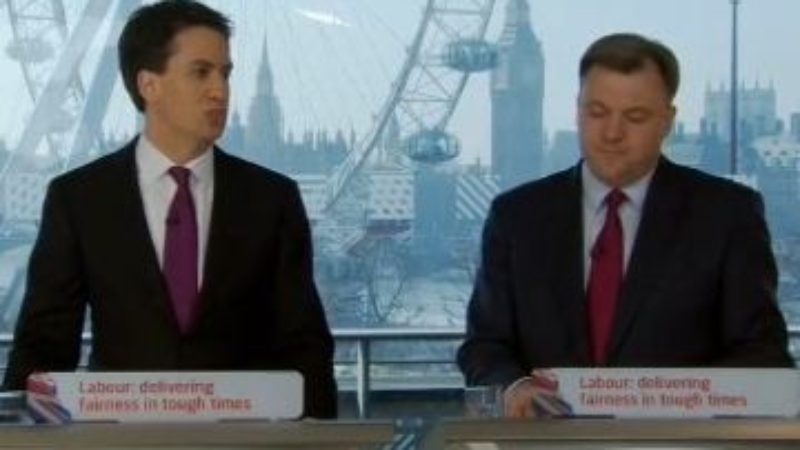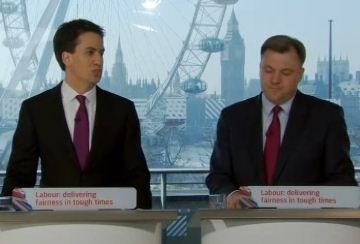
Imagine that you’re seated around the table with the Labour leadership and the predictable topic of discussion comes up: how do we respond to UKIP?
What do you suggest? You can’t do much about an EU Referendum since the leadership has agreed to hold one only if there a proposed transfer of more powers from London to Brussels. Any change in position would muddy the waters even further and be spun as a panicked u-turn.
Immigration? It’s a big issue, but what more are you going to say? You could keep repeating “we need to talk about immigration” – but its getting, well, repetitive. Ed Miliband was right yesterday to ruling out a bidding war with UKIP on it, but there is little more to say in policy terms. Even the Tories are struggling with harsher policies since they can’t shut the door on Eastern Europeans, hence stunts like the Go Home vans.
So we are left with only one credible option to retain voters tempted by UKIP: deal with their economic fears and insecurities.
On Monday and in his speech yesterday, Miliband said as much: “There is a deep sense of discontent with the way this country is run and the way our economy works. Over the next year, I’m determined to show that Labour can bring the change this country desperately needs.”
So far so good. But this view will face resistance from the top, led by a person no less than the shadow chancellor himself.

A few weeks ago, a prominent Labour MP told me he was worried about a “catastrophic” exodus of Labour voters to UKIP. Results over the weekend confirmed his worries. He went on to say that Labour needed to get them back with a “clear and bold offer” that dealt with the economic fears of people who voted UKIP.
And then it got more interesting because he was more specific. He said Labour had become too obsessed with being fiscally conservative and ensuring it was not seen as profligate, but not enough on speaking to people’s everyday concerns about insecurity from job loss or low pay.
This wasn’t a traditionally left Labour MP. This was someone firmly in the centre ground of the Labour party; an ex-Blairite. I’ve not heard anyone put it in such stark terms yet.
The wealth of data on UKIP sympathisers says most are deeply insecure about their economic prospects, worried about the future and want some stability in a rapidly globalising world. So the analysis by this MP (who also said Miliband wasn’t grasping the nettle strongly enough) and Mr Miliband himself, seems spot on.
But not so quick. They will face resistance from those who want focus to return back to ‘fiscal competence’ – i.e. trying to out-Tory the Tories on the economy. You can see this rearing its head with Anthony Painter writing this week that Labour should abandon the cost of living focus and pivot back to spending cuts instead. This is an odd argument since talking about ‘fiscal discipline’ for two years only moved the polls against Ed Balls’s ratings on economic competence, not in his favour.
But talk of ‘fiscal discipline’ gives the shadow chancellor more say over decisions and announcements, so naturally he will want to gravitate towards that narrative. His sop to UKIP sympathisers? To, er, speak “more loudly and clearly” on immigration and Europe. Because that strategy has clearly worked out for the Conservative party.
Last week convinced Ed Miliband’s team that their focus on the cost of living is right because it helps people hurt by globalisation and the UK’s skewed economy, many of whom are now UKIP sympathisers. But Miliband’s detractors will argue that last week’s results has vindicated their belief that ‘cost of living’ isn’t cutting through and the focus should return to fiscal discipline. The Conservatives aren’t the only party split on how to respond to Nigel Farage.




More from LabourList
‘Labour won’t win back left defectors with squeeze messaging alone’
‘Help shape the next stage of Labour’s national renewal through the 2026 NPF consultation’
‘AI regulation is key to Labour’s climate credibility’